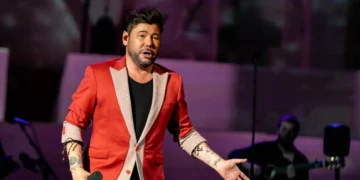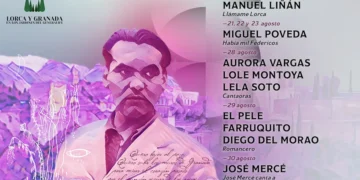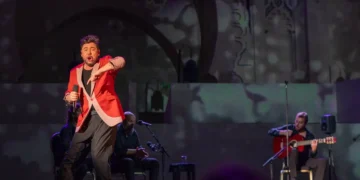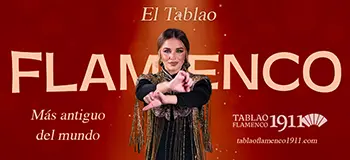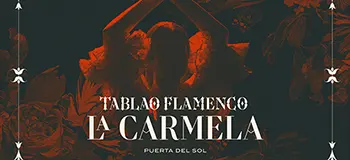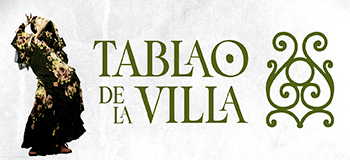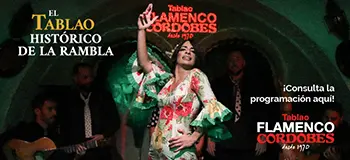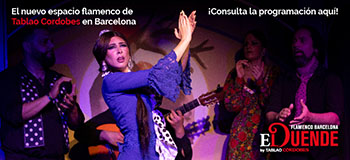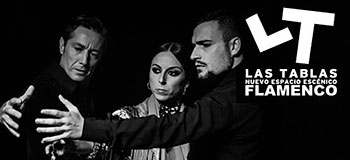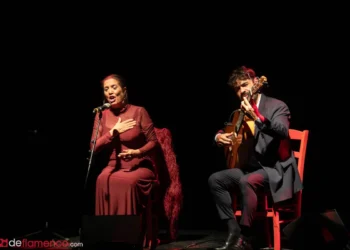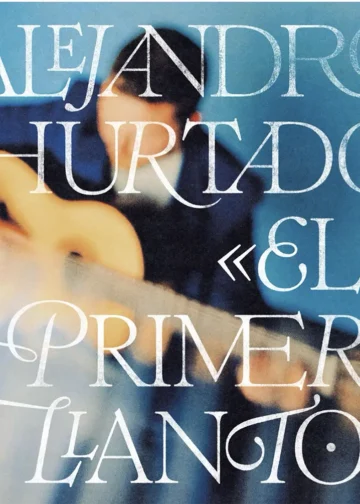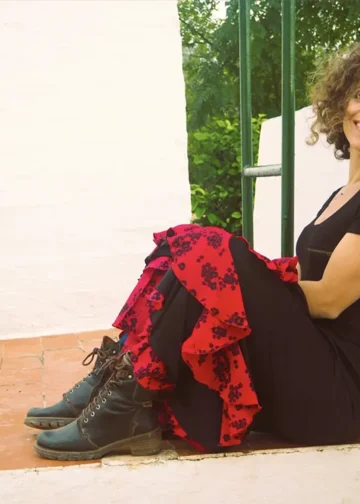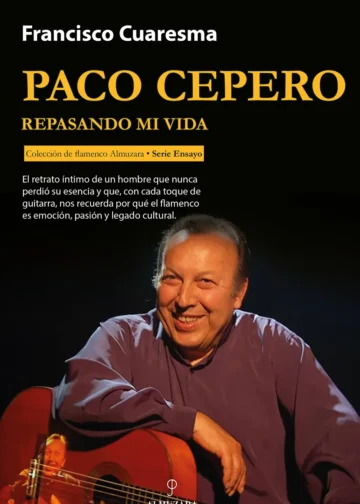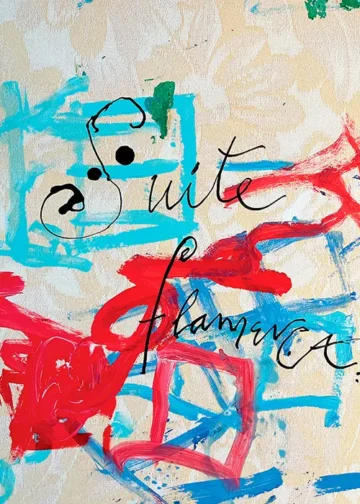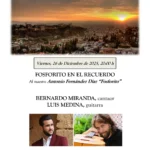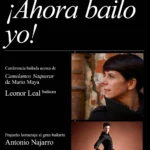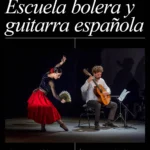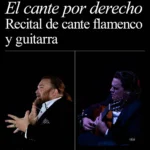|
XLIV Gazpacho Andaluz Saturday, July 31st, 2010. 2230h. |
|
Text and photos: Estela Zatania WITH FEW INGREDIENTS, A FLAMENCO BANQUET Programs can be just as unpredictable as a paella; regardless of the ingredients, until it’s on the table you don’t know how it’s going to come out. On this occasion, people who flocked to the forty-third edition of the Gazpacho Andaluz to see and hear their idol, Miguel Poveda, had no reason to complain about the rest of the evening. This was largely due to the organization’s wise use of limited resources. If in previous years there were six or seven high-flying artists, this year’s Gazpacho was well-rounded and sufficient unto itself precisely because of the diversity offered by just three main ingredients: the festive cante of Alfonso Luna, the impeccable dancing of Pepe Torres and professional social phenomenon, Miguel Poveda.
Another facet of flamenco in Morón has always been the popularity of bulerías songs at fiestas and informal gatherings. Young Alfonso Luna, with a new recording titled appropriately enough, “El Gusto por la Bulería”, had no complexes about delving into this festive form which is not necessarily as frivolous as you might think. This is a singer who grew up listening to good cante, and with his group sending out waves of flamenco feeling, he rendered classics like “Ojos Verdes” and “Toda una Vida” apt for consumption by flamenco fans. A second guitar soloist was offered as a “surprise”; young Luis Torres, grandson of Joselero played soleá with the most intense flavor of Morón. Following this, another grandson of the beloved singer, Pepe Torres, lest we forget that the current generation in Morón has produced excellent dancers, most notably Juana Amaya, Juan de Juan and Torres himself. Three interesting young singers, David el Galli, Moi de Morón and Miguel Lavi, and the solid guitar accompaniment of Eugenio and Paco Iglesias, backed up alegrías and soleá danced with the sober elegant style and good compás that characterize one of the few young people who follow a traditional line of dance nowadays.
With his faithful sidekick and guitarist Chicuelo, and the palmas of Luis Cantarote and Carlos Grilo, Miguel once again showed his constancy and capacity. Cantiñas, malagueña de Peñaranda (a welcome respite from so much Mellizo) with jabera, soleá, “Tres Puñales” in the version of Gaspar de Utrera, a lengthy assortment of bulerías a capella, encore of “Alfileres de Colores” with his tasty little dance, and all the while hundreds of blinking telephones documented the moment audiovisually. More information: |
Descubre más desde Revista DeFlamenco.com
Suscríbete y recibe las últimas entradas en tu correo electrónico.







